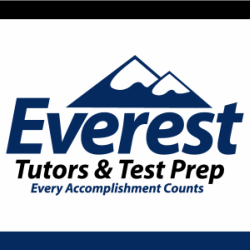|
According to a new study by the American Educational Research Association, more than half of the students tracked over a five-year period experienced learning loss over the summer months, averaging a loss of nearly 40 percent of their school year gains each summer. The study’s authors expect that loss to be magnified by the disruption to in-school learning this year, comparing the period since March to an extended summer vacation for most students. To help mitigate learning loss, we most often help students over the summer with their core skills – the ones that they will turn to time and again throughout high school and college. ReadingStructure, Comprehension, Critical Thinking, and Analysis Especially in middle school, we are focused on students who no longer express an active interest in reading. We look for this red flag and others that indicate problems with reading more complex materials. If you can address this problem early on, you will prevent years of struggle for the student. WritingGrammar and the Planning, Structuring, and Mechanics of Writing Students learn and apply the core grammatical rules and constructs through practicing various forms of writing as well as editing. Most high school and college classes in arts and sciences will require experienced writing skills for success, so we encourage mastering these skills in 7-10th grade years before these longer, more complex projects become the norm. MathReinforcing Core Skills at Each Level to Prepare for the Next We know that math skills have suffered the most with the transition to virtual learning. Each level of math requires a mastery of a previous subject, so when a student gets derailed on fundamentals, their future success suffers, and many hit a wall they are not prepared to get over themselves. Knowing the key areas where students need assistance, we are able to improve their skills, so they are ready to tackle the next level. In math, we are especially concerned that students master the concepts and skills presented in Algebra I and parts of II, which will appear on the ACT and SAT tests, and which are necessary foundations for advanced sciences and higher-level math courses. Overall, the students who often need the most help are those 1) going from Geometry to Algebra II, who need a review of Algebra I concepts; and 2) those going into Pre-Calculus, who need a review of Algebra II and Trigonometry. Study SkillsHow to prioritize work, learn new materials, and complete assignments correctly and on time From the transition to digital learning to the radical new schedules being implemented, it is no wonder many students need help putting their academic worlds in some kind of structured order or with figuring out how to tackle more materials and concepts on their own. Our experts guide your student on an individual basis to success so that they can self-manage their school work and learning. We recommend starting students on the process right as school begins so they can get into a good routine and build a useful framework that will support their learning throughout the year and prevent them from getting behind too early. Be Prepared for FallWith the high probability that students will continue to attend a multi-environment school with limited in-person teaching this fall, most students could benefit from focused work this summer in core areas to maintain skills they learned last year or to catch up to where they need to be when school starts.
No matter which area needs to be addressed, we offer experts who can work with your student to ensure they catch up and exceed their academic goals in the coming year regardless of the challenges being faced.
0 Comments
Leave a Reply. |
AuthorAnn Derryberry Archives
March 2024
Categories
All
|
Telephone |
© 2024 Everest Tutors & Test Prep | All Rights Reserved


 RSS Feed
RSS Feed